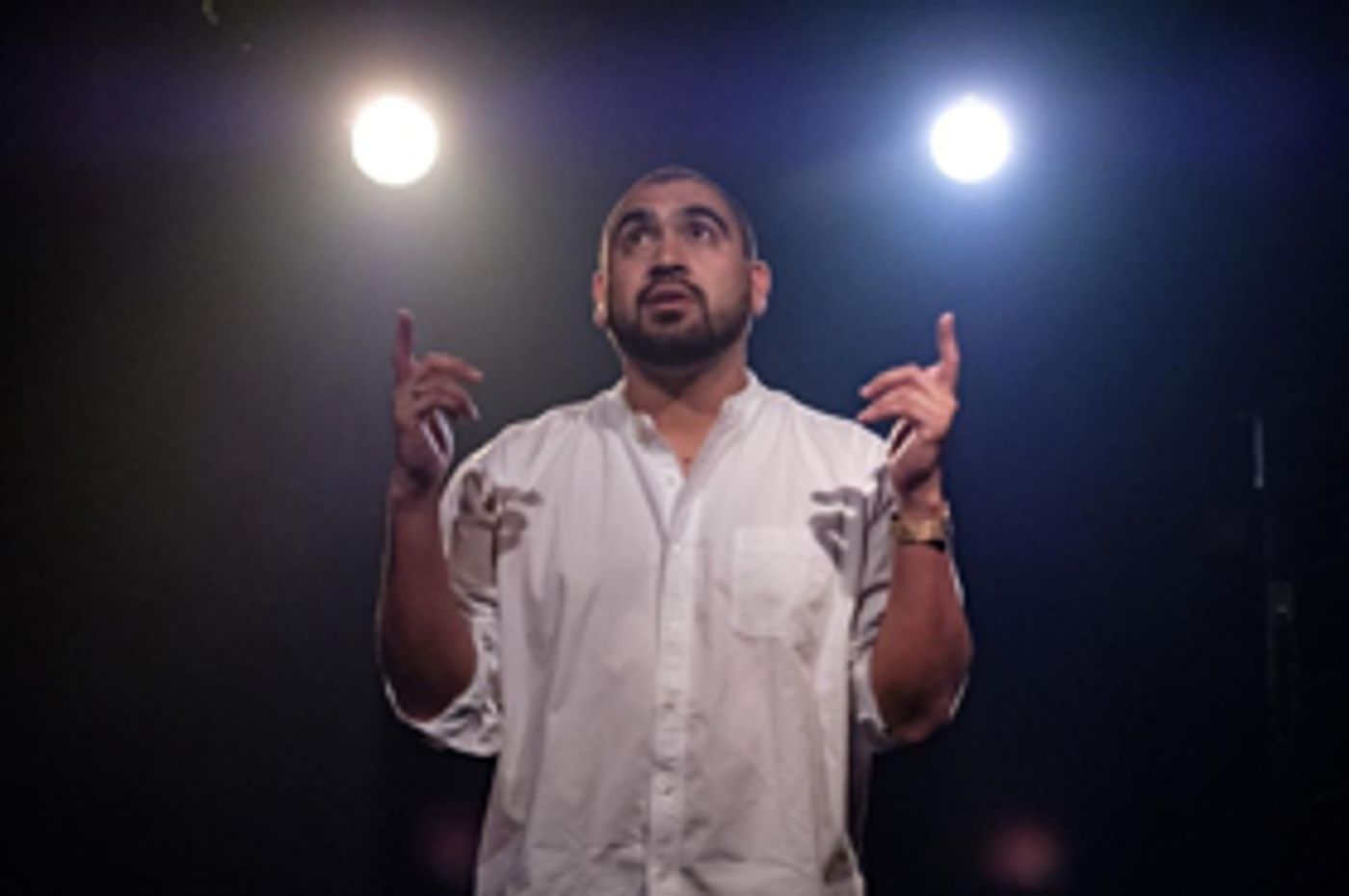Review Roundup: Griffin Theatre Company Presents Omar Musa's SINCE ALI DIED

This January, rapper, poet and award-winning Omar Musa brings his critically acclaimed show Since Ali Died back to Griffin Theatre Company for Sydney Festival following triumphant sold-out runs at Griffin's inaugural Batch Festival and Darwin Festival in 2018. Using the death of his hero Muhammad Ali as a lyrical springboard, Musa dives into a furious torrent of poetry, story and song, confronting everything from suburban violence to lost love to his Malaysian heritage-and the dark realities of growing up as a brown-skinned Muslim boy in Queanbeyan. Award-winning director Anthea Williams is once again at the helm of this livewire, hypnotic and totally unmissable hour of theatre.
OMAR MUSA is a Malaysian-Australian rapper, poet and author from Queanbeyan. In his writing and music, he confronts the dark realities of Australian history and culture. He has released two solo hip hop records and an album with international duo MoneyKat. Musa's debut novel Here Come the Dogs has received widespread critical acclaim and praise from novelists Irvine Welsh and Christos Tsiolkas. He has recently toured across Asia, USA, Europe, South America and Australia, performing spoken word and hip hop, to launch the book. His diverse career achievements include being long listed for the Miles Franklin Award and named one of the SMH's Young Novelists of the Year in 2015, winning the Australian Poetry Slam in 2008, receiving a standing ovation at TEDx Sydney and releasing three books of poetry: The Clocks (2009), Parang (2013) and Millefiori (2017).
Anthea Williams is a director and dramaturg who specialises in new work. For Belvoir she has directed Hir, Kill the Messenger, Cinderella and Old Man. She was awarded Best Director in a Mainstage Production at the Sydney Theatre Awards 2017 for Hir, which won several other awards, including Best Mainstage Production. For London's Bush Theatre she directed Two Cigarettes, 50 Ways to Leave Your Lover, Turf, suddenlossofdignity.com, The Great British Country Fete. Anthea's other directing credits include Flight Paths (National Theatre of Parramatta), The Colby Sisters of Pittsburgh Pennsylvania (NIDA) #KillAllMen (NIDA), and gin cabaret Mother's Ruin, which since 2016 has been performed in Australia and internationally, including a recent UK tour. Anthea is a Churchill Fellowship recipient for 2018.
Let's see what the critics have to say!
Jade Kops, BroadwayWorld: Musa's collection of stories and songs gives an interesting insight into his life, family, friends, faith and fortitude. He gives an insight into a father's blind faith, a caring mother constrained by a patriarchal society and the challenge of growing up as a dark skinned Muslim boy of Malaysian descent in the southern New South Wales town of Queanbeyan. He shares the challenges of loss and love and emerging from a world where the most obvious predetermined fate would be the drugs and crime that claims his best friend and girlfriend, using personal stories to reinforce that personal decision is what allows people to change their paths. He also challenges the contradictions and hypocrisy of politics and popular opinion as well as the racial prejudice prevalent in seemingly multicultural country.
Joyce Morgan, Sydney Morning Herald: His language is vivid and urgent, his delivery assured. Musa's is a distinctive, imaginative voice too rarely heard on a main stage. He is joined for two musical numbers by Sarah Corry, from whose slight frame issues a strong blues voice. Director Anthea Williams is a steady hand on the tiller, resulting in a tight hour-long show. By the time Musa delivers us to the furthest shore, we understand why he cried his eyes out in a Redfern pub when he learned his hero had died.
Kevin Jackson, JK Theatre Diary: I have been in awe of Mr Musa's gifts and have been an advocate to encourage you to witness this artist and hear his gifts. SINCE ALI DIED, in my second experience was a less emotional experience but still as mesmerising, as seductive in his radiant presence and in his sublime use of contemporary Australian language and modes. You will not go unrewarded - DO GO and encourage him to persevere with the challenge of his gifts. We need them and him.
Suzy Wong, Suzy Goes See: Melancholic and incredibly moving, Since Ali Died is a timely meditation on contemporary Australian life, an undeniable summation of all our unique challenges, whether spiritual, social or political. Black and brown people endure discrimination by white structures that lay fake claim to this land, just as Muslims are relegated impudently, to a status of religious inferiority. Omar Musa's very body and soul, right before our eyes, is evidence of those injustices that insidiously constitute our harmful way of life. He is thriving, but he suffers. In his music, simultaneously celebratory and indignant, we are able to understand the strength that is required of people like Musa. It is dark but uplifting, refusing to give in to destruction. His energy is ample and indomitable, and although painful to see it expended on coping mechanism, there is plenty left for orchestrating a change.
Jo Litson, Limelight: Directed by Anthea Williams, with singer Sarah Corry joining Musa for a couple of songs, Since Ali Died runs a tight hour, and was met on opening night with a standing ovation. It may occasionally feel a little scattered in structure, but it is riveting: a piece that feels raw, honest, authentic with a strong, clear message about tolerance, open-mindedness and compassion in a world where extremism is becoming frighteningly rife.
Reader Reviews
Videos

